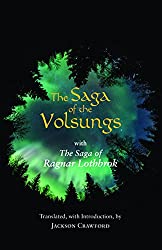Rating: 7.5/10. One of the most famous of the Icelandic Sagas: it was written in the 1200s in medieval Iceland, but describes existing folklore of the Viking culture that were familiar to everyone in the society. The events are perhaps based off real people but would have taken place several hundred years prior, in continental…
Category: Topics
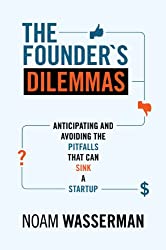
The Founder’s Dilemmas by Noam Wasserman
Rating: 7.7/10. Founders have to make a lot of critical decisions during the course of a startup, that will affect its outcome years down the line. The first decision is whether to quit your job and do a startup: ideally you should have the right career conditions (knowledge of an industry), supportive family, and the…
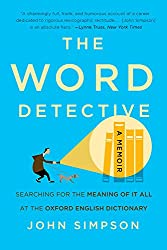
The Word Detective by John Simpson
Rating: 6.5/10. Memoir about how the Oxford English Dictionary is created. Author joins the team in the 1970s, after being a grad student in medieval literature. He reads obscure books from all sorts of genres to find new words to add, and often a lot of scholarly research and debate goes into settling a word’s…
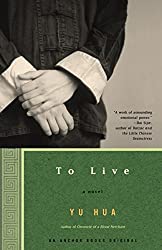
To Live (活着) by Yu Hua
Rating: 8.5/10. A very tragic novel — the protagonist is an old man telling the story of his life when he was young. In the beginning, he was born into a rich family, he gambled all day. He lost all his family’s property gambling and they had to move into a small hut. At this…
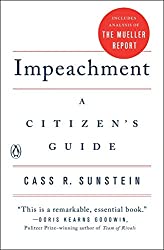
Impeachment: A Citizen’s Guide by Cass R. Sunstein
Rating: 7.5/10. Legal aspects of impeachment, written by a famous American lawyer. It’s a little-known clause in the constitution, designed to keep a balance of power, and so far, three presidents have been seriously in danger of impeachment before Trump (Johnson, Nixon, and Clinton). Impeachment is designed for serious misuse of presidential powers against the…

How Emotions are Made by Lisa Feldman Barrett
Rating: 7.8/10. The classical theory of emotions says that at least a few basic emotions are universal (happiness, fear, sadness, surprise, disgust, anger). However, this “essentialist” theory is put into question because it is difficult to find any consistent physiological fingerprint for these emotions; there is a lot of variation and interpretation is subject to…
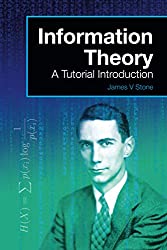
Information Theory: A Tutorial Introduction by James V. Stone
Rating: 8.0/10. Ch1: What is Information? Information is quantified using bits, not to be confused with binary digit. A binary digit contains at most one bit of information, but may contain less (if it’s not equally likely to be 0 and 1). Ch2: Entropy of Discrete Variables Definition of entropy H(x) for discrete random variables….
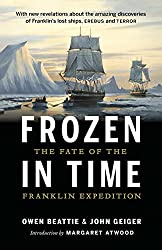
Frozen in Time by Owen Beattie and John Geiger
Rating: 7.0/10. Tells the story of Franklin’s Lost Expedition both as it happened, as well as an archeological point of view where we piece together what happened. The two ships set off in 1845 to explore the northwest passage, spends the first winter on Beechey Island (near Devon Island), but then gets stuck for two…
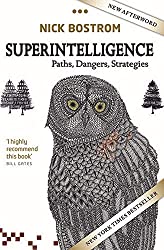
Superintelligence by Nick Bostrom
Rating: 7.8/10. It is unclear whether or when strong AI (superior to humans on a wide range of tasks) will be achieved, but many experts predict 2040-2050. Some possible ways to achieve strong AI: Current artificial intelligence path: unclear whether this will succeed, but it’s also the most unpredictable, since a small missing piece can…
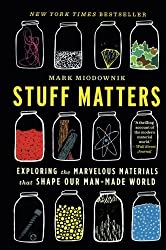
Stuff Matters by Mark Miodownik
Rating: 5.5/10. Pop science book by a material science professor, where each chapter talks about some material, their properties, history, etc. The first chapter “indomitable” is about metals: they’re as hard as rock but much more malleable so they don’t break easily. Humans first figured out how to make copper by heating a rock, then…
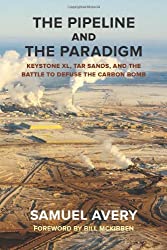
The Pipeline and the Paradigm by Samuel Avery
Rating: 6.8/10. The Keystone pipeline runs from Alberta down into the US into Texas and the Gulf of Mexico, and has attracted a battle between environmentalists and the oil industry. In this book, the author (an environmentalist who installs solar panels) interviews various people involved in the pipeline. There is first the local concern of…
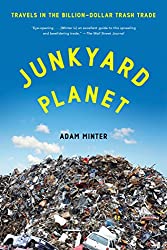
Junkyard Planet by Adam Minter
Rating: 8.2/10. Book by journalist and son of scrapyard owner. Americans think of recycling as an environmentalist act, but in reality it’s more like harvesting valuable materials out of what would otherwise be trash. Metals like copper, steel, and aluminum are harvested from all kinds of things like Christmas lights, cables, cars, etc. It’s a…
